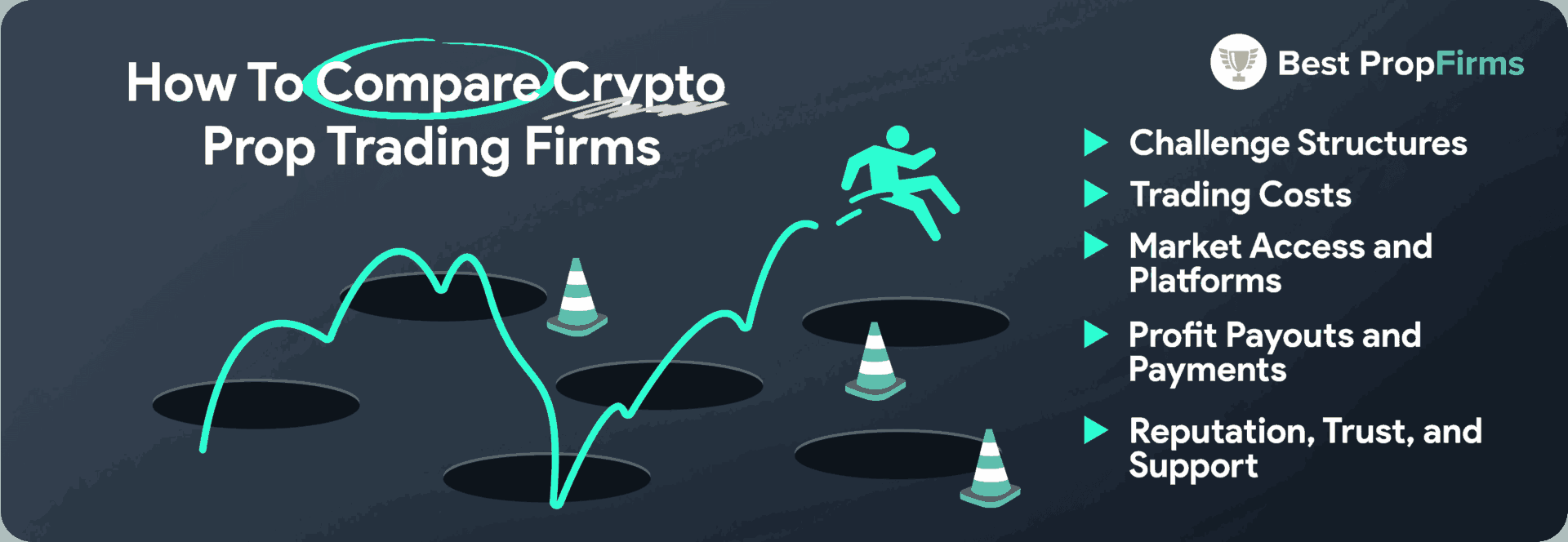Did you know that about 90% of day traders lose money, but it’s the remaining 10% that keep the dream alive? When considering proprietary trading firms, it's essential to understand the various risks that come with them. This article dives into the main risks of using prop firms, including potential financial pitfalls, the impact on personal trading accounts, and the dangers of sharing strategies. We also explore how strict trading rules and leverage can amplify risks, as well as the regulatory concerns and transparency issues that may arise. With insights from DayTradingBusiness, you'll gain a clearer picture of how prop firms can influence your trading success or lead to unexpected losses.
What are the main risks of using prop firms for day trading?
The main risks of using prop firms for day trading include losing your initial capital if you break their rules, limited control over trading decisions, and potential pressure to meet aggressive profit targets. If you fail to adhere to their strict risk management guidelines, you can face account suspension or loss of the opportunity to trade. Additionally, some prop firms have hidden fees or restrictive payout structures, which can cut into your profits.
How do prop firms impact day trading success and failure?
Prop firms can boost day trading success by providing capital, reducing personal financial risk, and offering training. However, they also increase failure risks through strict profit targets, high-pressure environments, and potential loss of capital if rules are broken. Traders may struggle to meet firm expectations, leading to significant stress and financial setbacks if they fail to adapt.
Are there financial risks when trading through proprietary trading firms?
Yes, trading through proprietary trading firms involves financial risks, including losing your invested capital, the firm's capital, or both. Some firms require traders to share profits, which can lead to financial pressure. Additionally, if you violate trading rules or risk limits, you might face penalties or loss of trading privileges. There's also the risk of relying heavily on the firm's infrastructure, which could malfunction or be unreliable.
Can relying on prop firms lead to unexpected losses?
Yes, relying on prop firms can lead to unexpected losses. If your trading strategies underperform or violate the firm's rules, you might face account restrictions or lose your capital. Market volatility can also cause losses beyond your expectations, especially if leverage is involved. Additionally, profit-sharing agreements can reduce your earnings, and failure to meet the firm's risk management standards can result in account closures.
What are the risks of sharing trading strategies with prop firms?

Sharing trading strategies with prop firms risks exposing your methods to misuse or theft, potentially leading to loss of proprietary ideas. It can also make your strategies less unique, increasing the chance of copycat trading that undermines your edge. If the firm misuses or leaks your strategies, it might harm your reputation or lead to unfair competition. Additionally, relying on a prop firm’s infrastructure might limit your flexibility, and if your strategies are compromised, it could jeopardize your trading capital or future profits.
How does using a prop firm affect your personal trading account?
Using a prop firm means your personal trading account isn’t directly at risk; the firm’s capital is. If you hit losses, they cover them, not you. However, your performance affects your reputation with the firm, possibly impacting future funding or opportunities. Some firms require strict adherence to rules, so mistakes can lead to termination or loss of access. Overall, it limits personal financial risk but shifts accountability to the firm’s policies.
Are there risks related to profit sharing with proprietary firms?
Yes, profit sharing with proprietary firms can reduce your overall earnings and limit your flexibility in trading decisions. It may also create conflicts of interest, pressuring you to meet targets that benefit the firm more than you. Additionally, strict compliance rules and performance thresholds could lead to account restrictions or termination if not met.
What are the potential risks of strict trading rules imposed by prop firms?
Strict trading rules from prop firms can limit flexibility, forcing traders to follow rigid strategies that may not suit market conditions. This can lead to missed opportunities or forced exits, increasing stress and reducing profitability. Overly restrictive rules might also cause traders to take unnecessary risks to meet targets, risking account bans or penalties. Additionally, reliance on strict rules can stifle trader creativity and adaptive thinking, making it harder to respond to unexpected market moves.
How does leverage provided by prop firms increase trading risks?
Leverage from prop firms amplifies trading risks by increasing both potential gains and losses. It allows traders to control larger positions with less capital, but if the market moves against them, losses can quickly surpass their account balance. This heightened exposure can lead to margin calls or account liquidation, making trades more volatile and risky.
Can using a prop firm lead to overtrading or excessive risk-taking?
Yes, using a prop firm can lead to overtrading or taking excessive risks. Prop firms often provide leverage and fast access to capital, encouraging traders to make more trades and take bigger positions. This pressure to perform can tempt traders to ignore their risk management rules, leading to reckless decisions and potential losses.
What regulatory risks are associated with proprietary trading firms?
Proprietary trading firms face regulatory risks like stricter oversight from authorities such as the SEC or FINRA, potential penalties for violating trading rules, and increased scrutiny over leverage and risk management practices. They must comply with capital adequacy requirements and restrictions on certain trading strategies, risking sanctions or license suspension if they fail. Changes in regulations can also limit trading activities or increase compliance costs, impacting profitability.
How do prop firms’ evaluation periods pose risks to traders?
Prop firms’ evaluation periods can pressure traders to take risky moves to meet targets quickly, increasing the chance of losing the account. If traders push beyond their comfort zone to pass the evaluation, they may make impulsive decisions that harm long-term consistency. Failing the evaluation means losing access to the firm’s capital and opportunities, which can be costly. Tight timeframes also force traders to focus on short-term gains over sustainable strategies, raising the risk of burnout or mistakes.
Are there risks of losing trading capital when working with prop firms?
Yes, working with prop firms can lead to losing trading capital if you hit your risk limits or violate their rules. While some firms offer risk management tools, mistakes or poor trading decisions can still result in significant losses. Always understand the firm’s trading rules and risk policies before starting.
What are the risks related to transparency and communication with prop firms?

Using prop firms in day trading risks poor transparency about fee structures, profit splits, and trading rules. Miscommunication can lead to misunderstandings about expectations, restrictions, or evaluation criteria. If the firm withholds crucial info or provides unclear guidelines, traders might unknowingly violate rules or face unexpected penalties. Lack of transparency also raises concerns about the firm’s legitimacy and whether they’ll honor payouts or handle disputes fairly.
How might prop firms influence your trading decisions negatively?
Prop firms can push you to take bigger risks to meet targets, leading to reckless trading. Their pressure to perform might cause you to ignore your strategy or risk management. You could feel compelled to trade more than you’re comfortable with, increasing emotional stress and mistakes. If the firm enforces strict rules or penalizes losses harshly, it can force you into risky behaviors just to avoid penalties. Overall, reliance on a prop firm’s environment may erode your trading discipline and make you more prone to impulsive, poorly thought-out trades.
Learn about How Do Prop Firms Affect Day Trading Strategies?
Conclusion about What Are the Risks of Using Prop Firms in Day Trading?
In summary, while proprietary trading firms offer attractive opportunities for day traders, they also come with significant risks that can impact your trading success. Traders must carefully consider financial implications, the potential for unexpected losses, and the limitations imposed by strict trading rules. Additionally, the reliance on leverage and profit-sharing arrangements can exacerbate risks. It’s crucial to remain aware of these challenges to make informed decisions in your trading journey. DayTradingBusiness is here to provide the insights and support you need to navigate these complexities effectively.
Learn about How Do Prop Firms Handle Losses in Day Trading?